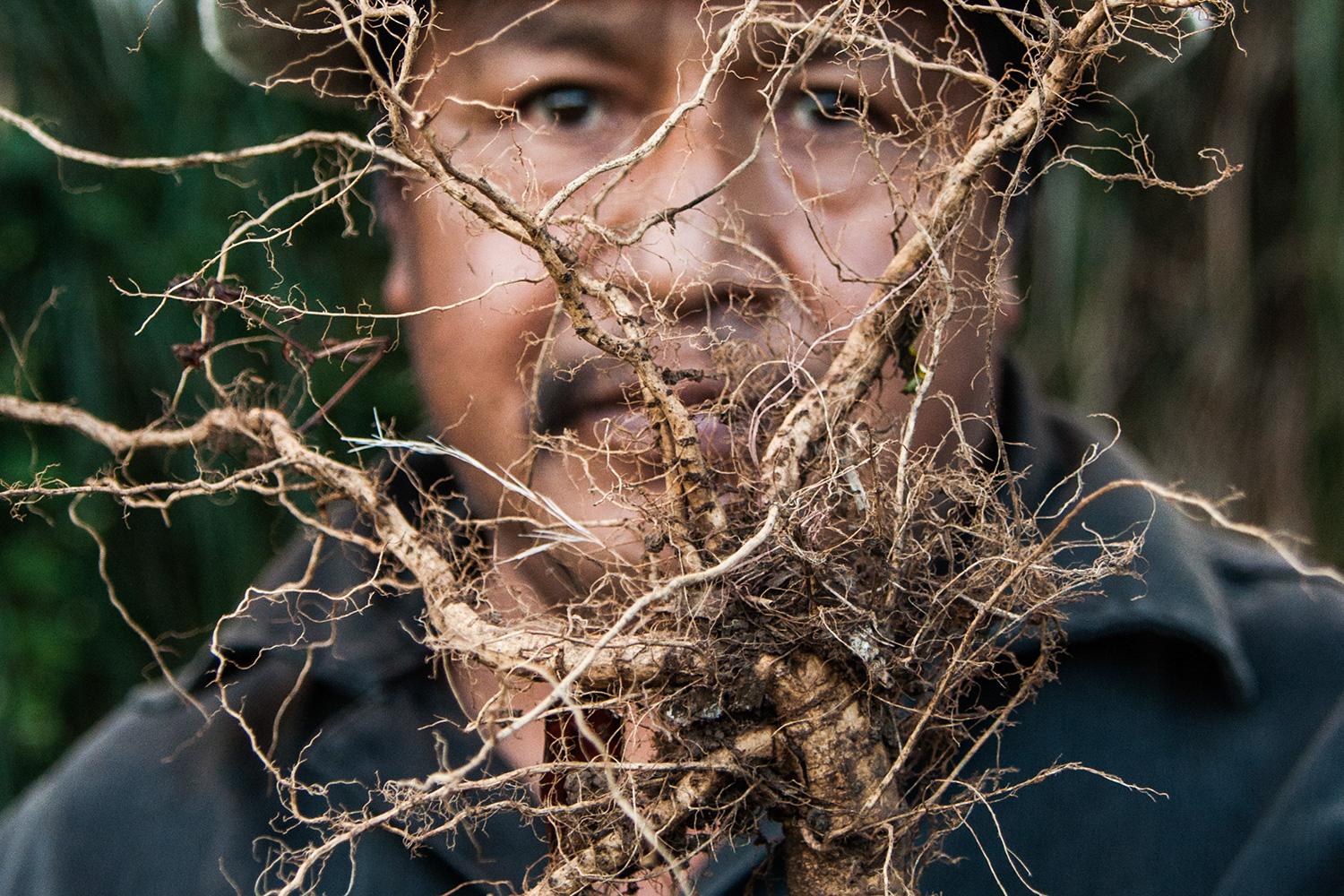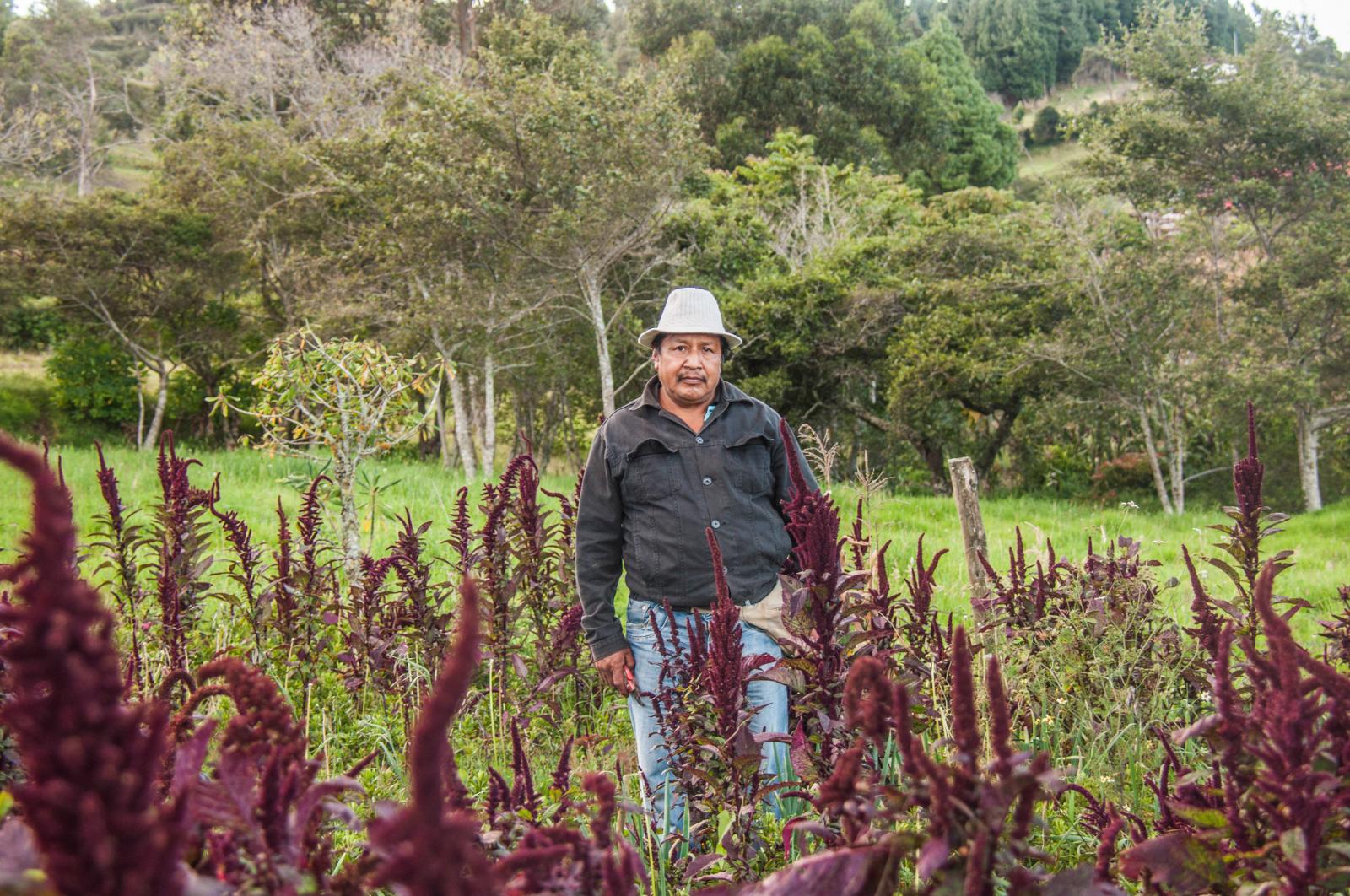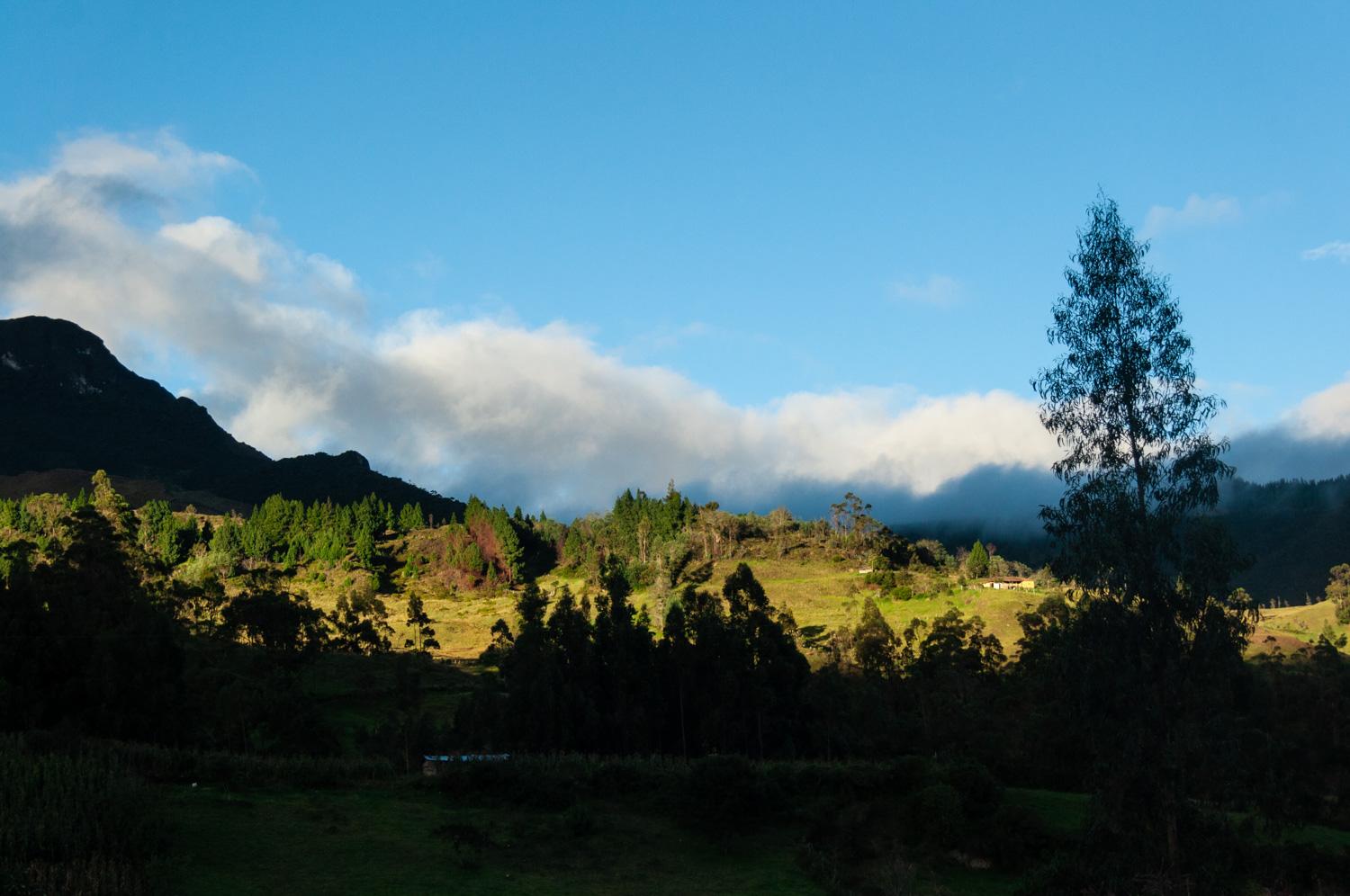Public Project
Miguel Tambo: Sovereignty and Resilience
Miguel Tambo es un pequeño agricultor de Chuquiribamba, una pequeña y pintoresca parroquia ubicada al noroeste de la ciudad de Loja-Ecuador. El lleva cultivando la tierra desde que tenía 20 años y cree firmemente que preservar la naturaleza es el futuro de la humanidad, y que la agroecología es la base de la sostenibilidad medioambiental, social y económica, “Es lo que va a garantizar a las generaciones que vienen” dice.
Durante algunos años, Miguel fue parte de los pequeños productores que se veían forzados a utilizar agroquímicos en su huerta, donde cultivaba más de treinta flores y plantas medicinales para la elaboración de la Horchata, una deliciosa bebida energizante y medicinal también conocida como "El agua curativa de Loja". Durante esos años, la venta de su producción a intermediarios que pagan una décima parte del precio normal le hacía pensar solo en sembrar para poder ganar, entonces un día su tierra fértil dejó de producir, "sembré zanahorias y lo único que me dio fueron raíces, ya luego ni la maleza quería crecer, en ese momento tomé conciencia y me propuse no utilizar productos químicos, compré libros y fui a capacitaciones, me tomó un año regenerar el suelo; ahora solo utilizo insumos y abonos orgánicos que yo mismo preparo." (Miguel)
Hoy Miguel vende su producción a una marca que compra directamente a pequeños productores a precio de comercio justo, creando una cadena de valor sostenible que ha mejorado su calidad de vida. En 2011 ganó el premio como “La mejor Horchata del Ecuador”. Hoy su receta se vende en otros países y se siente orgulloso de dar a conocer su cultura al mundo a través de su receta tradicional. Además de ser un ejemplo de resiliencia en el mundo globalizado, Miguel está comprometido con la causa por el daño medioambiental que provoca los agroquímicos, ahora es uno de los pocos pero cada vez más productores locales que promueven el respeto a la naturaleza y luchan alzando su voz en resistencia para la preservación de su identidad, de su territorio y de sus saberes ancestrales.
Stories in Territory/FluxusFoto
EN
Miguel Tambo is a small farmer from Chuquiribamba, a small and picturesque parish located northwest of the city of Loja-Ecuador. He has been cultivating the land since he was 20 years old and firmly believes that preserving nature is the future of humanity, and that agroecology is the basis of environmental, social and economic sustainability, “It is what will guarantee generations they are coming” he says.
For some years, Miguel was part of the small producers who were forced to use agrochemicals in his garden, where he cultivated more than thirty flowers and medicinal plants for the production of Horchata, a delicious energy and medicinal drink also known as "The water curativa of Loja". During those years, the sale of his production to intermediaries who pay a tenth of the normal price made him think only of planting in order to earn, so one day his fertile land stopped producing, "I planted carrots and the only thing he gave me were roots, and then even the weeds did not want to grow, at that time I became aware and I decided not to use chemical products, I bought books and went to training, it took me a year to regenerate the soil; now I only use organic inputs and fertilizers that I prepare myself." (Miguel)
Today Miguel sells his production to a brand that buys directly from small producers at fair trade prices, creating a sustainable value chain that has improved their quality of life. In 2011 he won the award as "The best Horchata in Ecuador". Today his recipe is sold in other countries and he is proud to make his culture known to the world through his traditional recipe. In addition to being an example of resilience in the globalized world, Miguel is committed to the cause of environmental damage caused by agrochemicals, he is now one of the few but increasingly local producers who promote respect for nature and fight by raising their voice in resistance for the preservation of their identity, their territory and their ancestral knowledge.
Relatos en Territorio/FluxusFoto
3,092



